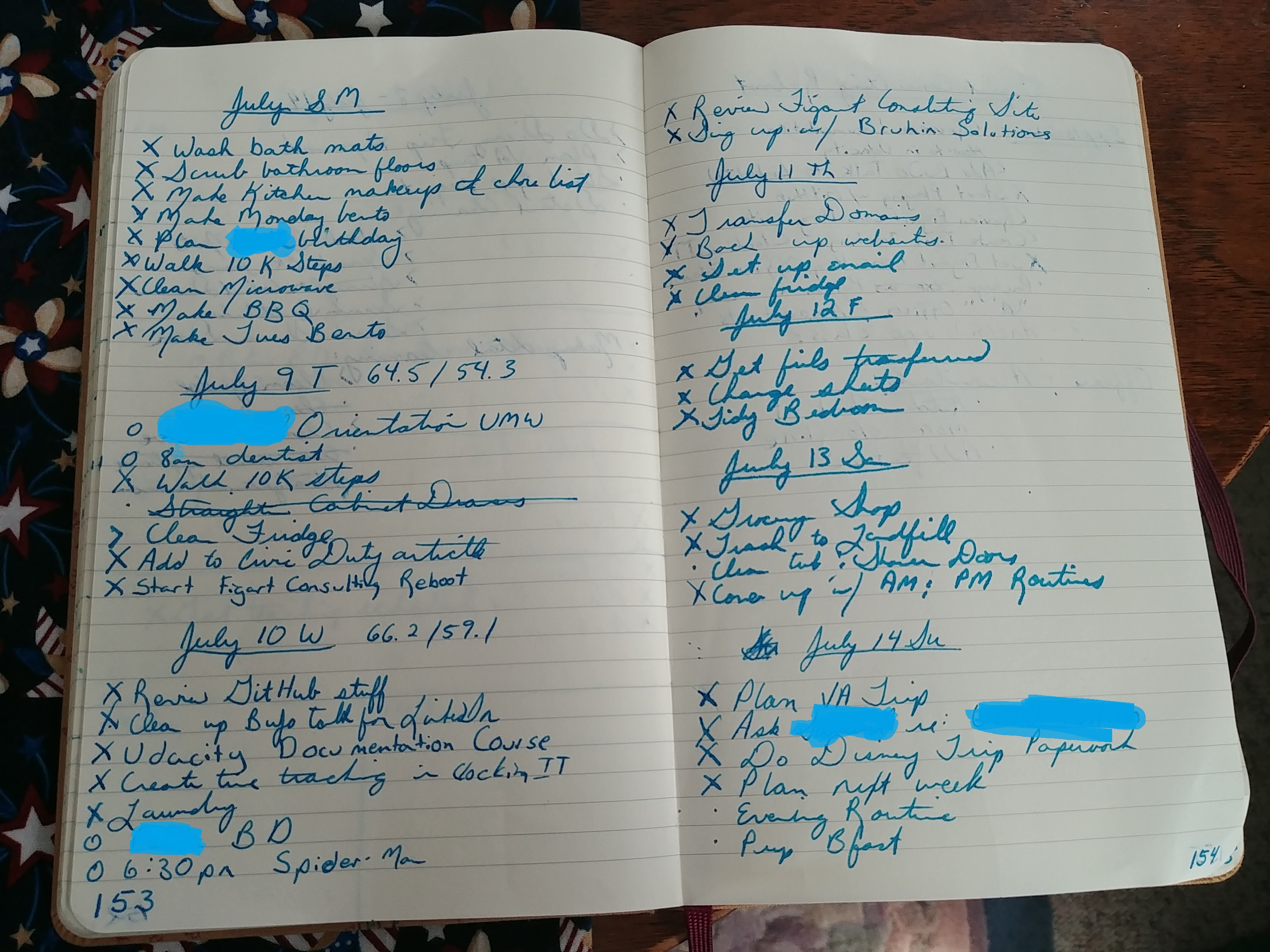It’s not a secret that I love trying out life systems and self-improvement ideas. And Goodness knows it’s a weird hobby. Flylady, Konmari, Everyday Systems, Bullet Journals, you name it. I find these things interesting and enjoyable to play with.
That’s the thing. I’ve begun to look at it as a hobby. Not every system I’ve tried has necessarily produced the results I wanted, but you know what?
Some have. My homemaking skills are a lot more Flylady than Konmari, but wow was keeping my home tidy easier after I did the big ole tidying “festival” Marie Kondo suggested.
I like listening to self-improvement books when I walk alone.
None of this has exactly made me a paragon of virtue or excellence, mind. I’m not rich. I’m not skinny. I’m not famous. *wrygrin* My view of the improvement of the Self even questions how in the world these three big goals seem in any way to be listed as self-improvement.
Fine, your house is tidy now. But do you treat people kindly?
Okay, you’re rich. How did you get that way? Were you honest? Were you able to keep your integrity?
Great, you’re skinny. Is this a virtue?
Things I think would be better addressed in self-improvement literature:
- What is your word worth?
- How’s your compassion?
- Do you have good boundaries and how do you enforce them with kindness?
- What do you see as your duty, and do you fulfill it? If not, what’s stopping you?
Not ONE self-improvement book I’ve seen discusses these topics much. Though, Marla Cielly of Flylady fame and Reinhard Engels of Everyday Systems seem to strike me as people to whom integrity and kindness seem to mean something.
But most of the so-called self-improvement literature I see is a lot less about becoming virtuous and a lot more about becoming inappropriately selfish. I say “inappropriately” because boundary setting can look selfish to someone wanting to take inappropriate advantage of you.
Few of these books discuss one’s duty to oneself and one’s fellow humans.
I think these questions are considerably more important than whether or not you have enough self-discipline to stick to a diet. For my own part, I find sticking to a diet a lot easier than being patient with strangers who frustrate me, speaking up about an injustice, or setting appropriate boundaries with people whose real motive is to use me as a thing or resource.
I think being a size two, being well-known or having a big bank account is trivial compared to that.
And I find it interesting that the self-improvement industry is largely silent on it.



